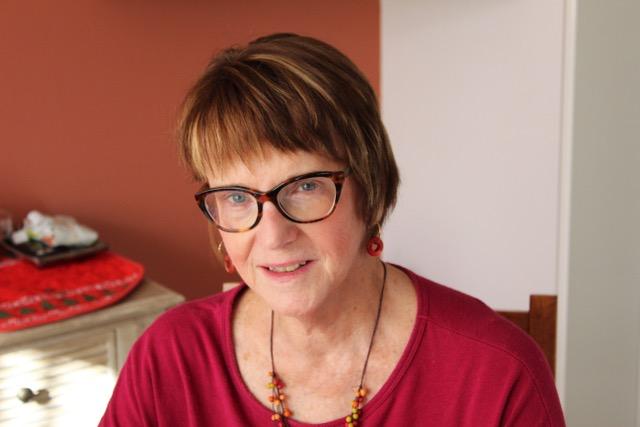How might we avoid reproducing racial trauma through the church’s songs?

Learning
Some among us may have heard the saying “Music is a universal language.” If you love many kinds of music, as I do, your initial reaction to the statement might be something like “Yes, of course!” After all, beautiful melodies and infectious rhythms cross borders and can penetrate barriers of language and culture. Throughout time, musicians have journeyed afar, acquired “other people’s music,” and blended it with their own. Recent experience has shown us that “global” worship music can help us feel the Spirit in new ways.
Unfortunately, some among us may have only come to this realization relatively recently, and it bumps up against the strong cultural indoctrination that European-based music is somehow superior to all else. The myth of music as a universal language came to mean that European music was universal, overlooking the fact that music is a product of the culture from which it emerges. Rhythms and melodies represent culture, and lyrics may embody cultural beliefs, biases, and notions of cultural superiority.
The belief in European superiority, including music, enabled the Christian Church to impose racist harm under the guise of “mission.” Traditional hymns carry deep cultural meanings that can feel quite personal to the singer. As a result, Christians in settler colony nations like Canada may overlook the damage that some songs of the church may continue to cause. When missionaries imposed European church songs, those songs came to represent the trauma of colonization. People who have not experienced racial trauma may not comprehend how music can cause trauma to resurface. The belief that traditional hymns must remain unchanged prevents some Christians from embracing new hymns or sacred songs from formerly colonized peoples. However, such hymns often speak directly to life in today’s world. They acknowledge and lament both harms of the past and ongoing injustices. Upholding the idea that music is a universal language enables the use of hymns that may mask racist theologies and beliefs in White cultural superiority.
Change can be hard, particularly in institutions built on tradition, like the church, yet resistance to change may indicate unacknowledged White supremacist ideology of the superiority of European-based music. Taking comfort in old, familiar hymns represents a way of moving mentally “back to the good old days”––the days before we recognized how images of a White male God, described with militaristic and nationalistic imagery, negatively affects Indigenous, racialized, and formerly colonized peoples, and people whose ancestors were enslaved.
Faith Reflection
Please pray with me:
Creator God, we ask your forgiveness for the harm that has been caused in your name. Help us to learn new songs of prayer and praise and to leave behind the songs that contribute to ongoing hurt. Guide us to new understandings about music’s power to hurt and to heal. Teach us how to sing in loving relationship with all people, and with all of creation.
Living It Out
- How might we avoid reproducing racial trauma through the church’s songs? Technology today makes it easy to learn about the history of a hymn text or its composer. With this knowledge, worship leaders can begin to understand the racial and colonial imagery embedded in lyrics, and with this knowledge, prayerfully choose worship music that upholds the work of anti-racism and reconciliation.
- Some hymn tunes written during the colonial era may speak powerfully in worship, but their associated texts are problematic. In these cases, worship leaders can seek out alternate texts to replace triggering imagery, keeping in mind that there may be some resistance to new texts set to favourite tunes. Some hymns may need to be retired altogether, as the United Church has done with hymns such as “Onward, Christian Soldiers.” Retiring hymns whose language reinforces past harms is a long-standing practice in the United Church and other denominations. The need to retire hymns is one reason we need new hymnal collections periodically! Helping congregations adapt to these necessary changes, though, requires patience as people accept new language and imagery.
- Be attentive to racism and nationalistic images in new hymns as well. Hymns, like all kinds of music, represent the culture in which they originated, and the composer’s biases and cultural assumptions may reside in both the music and the lyrics.
- Encourage your congregation to explore hymns from other cultures and in other languages.
- Singing a song in its original language helps us get a sense—even if imperfect–of how that song feels to the people who first sang it. This is where music may truly serve as a “universal language”—by helping us connect to the Spirit, to feel the presence of God. New songs, including those from other cultures and in other languages, can connect us with the Spirit in new ways, and in that connection, we can move toward loving relationships with all peoples and with creation.
—Deborah Bradley (she/her) has been a lifelong church musician. She has served in Music Ministry for several Toronto-area churches. She retired from active music ministry in 2014, but remains active as an organist and a choir member, and serves in a support role for the Music Ministry at Islington United Church, where she is a member. She is also a member of Islington United’s Anti-Racism Working Group. Deb holds a BMus and MMus in Music Education from the University of Toronto, and a PhD in Sociology and Equity Studies in Education from the Ontario Institute for Studies in Education. Her academic teaching and research focused on anti-racism in music education. She has authored many journal articles and book chapters on anti-racism, including two recent articles in Gathering, and is co-editor of the book Trauma and Resilience in Music Education: Haunted Melodies, published by Routledge. Now retired from the University of Toronto and the University of Wisconsin-Madison, she continues her work in anti-racism in community settings.